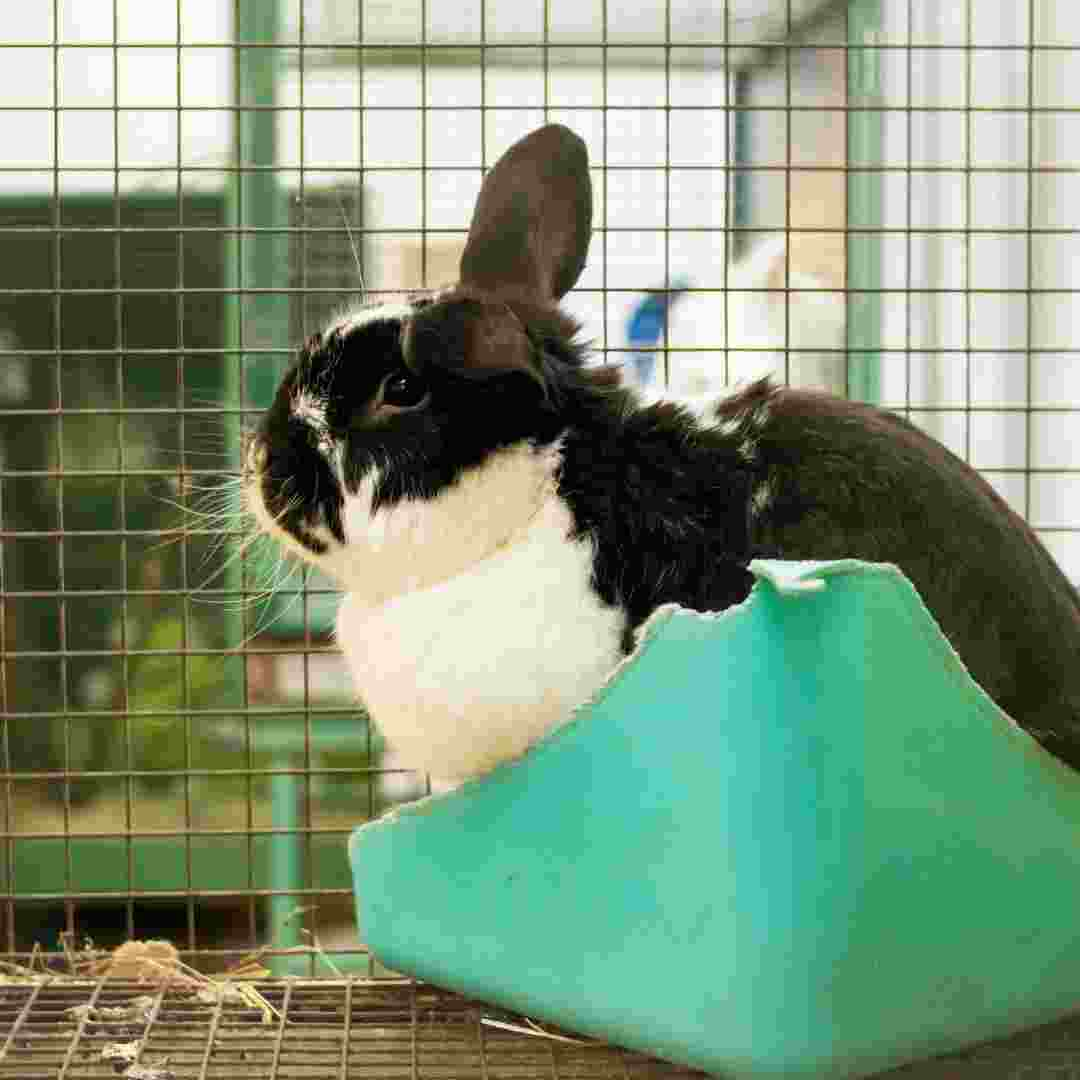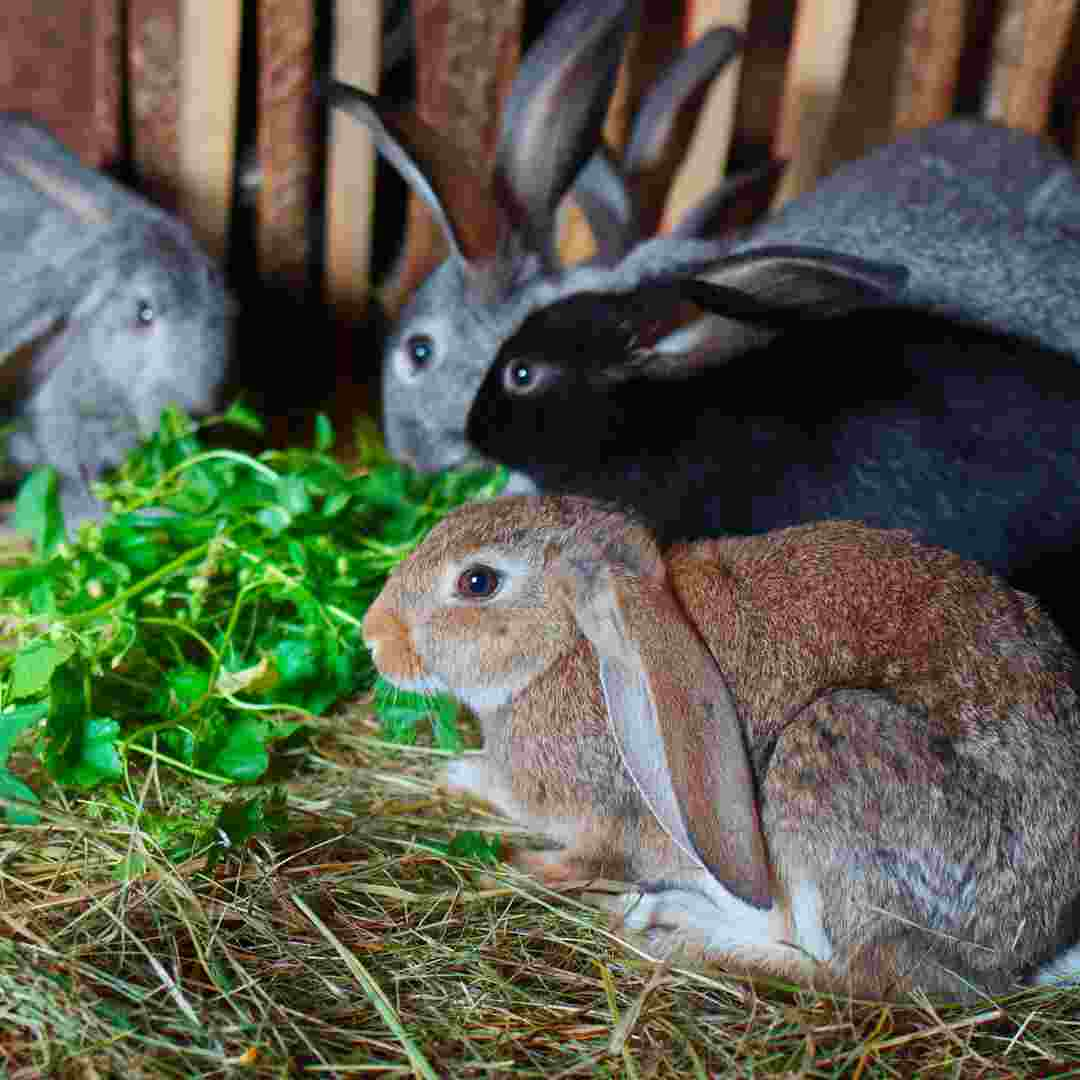Contents Table
Introduction
How much and how often should you feed your rabbit?
Rabbit food: what should you feed it?
Benefits of Feeding Your Rabbit a Balanced Diet?
How Can You Tell If Your Rabbit Is Fed?
What Are Rabbit Overfeeding Signs?
Q&A
Conclusion
Introduction
Rabbits are lovely pets but need lots of attention. Knowing how often to feed a rabbit is crucial. Balanced rabbit diets include hay, fresh veggies, and a little pellets. Age, size, and activity level determine rabbit feeding amount and frequency. Feeding adult rabbits twice a day is typical; younger bunnies may need three to four times. Keep track of your rabbit's weight and modify meal amounts. With proper care and nourishment, your rabbit can live long and healthy.
How much and how often should you feed your rabbit?
Rabbits need a special diet to keep healthy and happy. To maintain optimum nutrition, you must know how much and how often to feed your rabbit.
Size, age, and activity level determine rabbit food needs. Average adult rabbits should eat 1/4 cup of pellets every 5 pounds each day. Fresh hay and pellets should always be available. Hay is abundant in fibre and helps rabbits digest, thus it should be their main food. Daily fresh veggies of various varieties should be provided.
Rabbits should be fed twice daily. Provide pellets and vegetables in the morning. Offer fresh vegetables and hay at night. This will guarantee your rabbit gets enough nourishment daily.
Remember that rabbits are grazers, eating little amounts throughout the day. If you are away for a long time, give your rabbit more food in the morning and hay in the evening. This ensures your rabbit has adequate food until you return.
You can feed your rabbit properly and keep them healthy and happy by knowing how much and how often.
Rabbit food: what should you feed it?
Rabbits are herbivores and should only eat plants. Hay, fresh veggies, and a little pellets are good for rabbits.
Hay should dominate a rabbit's diet. Hay should be high in fibre and low in protein and calcium. Timothy, oat, and brome hay are good. Hay protects rabbits' digestive systems and gives vitamins and minerals.
Rabbits need fresh vegetables too. Kale, spinach, and romaine lettuce are beneficial. Carrots, celery, and bell peppers are also options. Sugary fruits should be provided sparingly.
Finally, a rabbit should eat some pellets. Pellets should be high in fibre, low in protein and calcium. They should lack artificial colours, flavours, and preservatives.
Feeding your rabbit hay, fresh veggies, and a few pellets will keep it healthy.
Benefits of Feeding Your Rabbit a Balanced Diet?
Rabbits need a balanced diet like any other animal. Feeding your rabbit a balanced diet will improve digestion, coat condition, and energy.
First, a balanced food aids your rabbit's digestion. A diet high in fibre and low in sugar and fat helps the digestive system work smoothly and prevents diarrhoea and bloating. A balanced diet stimulates rabbits to chew and grind their food, which keeps their teeth healthy.
Second, a balanced diet maintains your rabbit's coat. A diet high in fibre and low in sugar and fat keeps the coat glossy and healthy. A balanced diet also keeps rabbit skin healthy and itch-free.
Finally, a healthy diet boosts rabbit energy. A diet high in fibre and low in sugar and fat keeps rabbits active and healthy.
In conclusion, feeding your rabbit a balanced diet helps improve digestion, coat condition, and energy. Rabbits need a balanced diet like any other animal.
How Can You Tell If Your Rabbit Is Fed?
For proper health, your rabbit needs the right amount of food. To check if your rabbit is eating enough, look for many indicators.
First, weigh your rabbit. A healthy rabbit should be firm and round, not thin or overweight. An underweight rabbit may not be getting enough food.
Second, watch your bunny. Lethargic rabbits may not be getting enough food.
Third, inspect your rabbit's fur. Fur should be lustrous and bald-free on a healthy rabbit. A drab, spotty coat on your rabbit may indicate malnutrition.
Finally, examine rabbit droppings. Firm, spherical rabbit droppings are healthy. Soft, runny droppings may indicate malnutrition in your rabbit.
You can tell if your rabbit is fed by its weight, behaviour, coat, and droppings. If you think your rabbit isn't eating enough, ask your vet.
What Are Rabbit Overfeeding Signs?
Overfeeding rabbits can cause obesity, intestinal disorders, and heart disease. Being aware of overfeeding signals allows you to take actions to feed your rabbit properly.
The most common indicator of overfeeding is obesity. If your rabbit is gaining weight, they may be overeating. Lift your bunny lightly and feel for excess fat to check their weight. Your overweight rabbit needs less food and more activity.
Indigestion is another sign of overeating. If your rabbit has diarrhoea, vomiting, or bloating, they may be overfed. Check for flatulence or pain after eating.
Heart disease can result from overeating. If your rabbit has trouble breathing or is lethargic, it may have heart problems. If your rabbit has these symptoms, take it to the vet.
You can keep your rabbit healthy and fed by recognising overfeeding signals. If you see any of the aforementioned indicators, reduce your rabbit's meals and increase their exercise.

Q&A
1. How often should rabbits be fed?
A: Rabbits need morning and evening meals.
2. What should my rabbit eat?
A: Rabbits need hay, fresh veggies, and a little pellets.
3. How much should I feed my rabbit?
A: Give your rabbit 1/4 cup of pellets per 5 pounds of body weight per day and unlimited hay and fresh veggies.
4. What things should I avoid giving my rabbit?
A: Avoid feeding your rabbit sugary or fatty items like candy, chips, and nuts.
5. Change my rabbit's food how often?
A: To feed your rabbit a healthy diet, replace their food every two weeks.
Conclusion
Your rabbit needs hay, fresh veggies, and a few pellets daily. You should feed your rabbit 1/4 to 1/2 cup of pellets every day, depending on size and age. Give your rabbit ample hay and fresh veggies to eat all day. These suggestions will guarantee your rabbit gets the nutrition it needs to keep healthy and happy.
